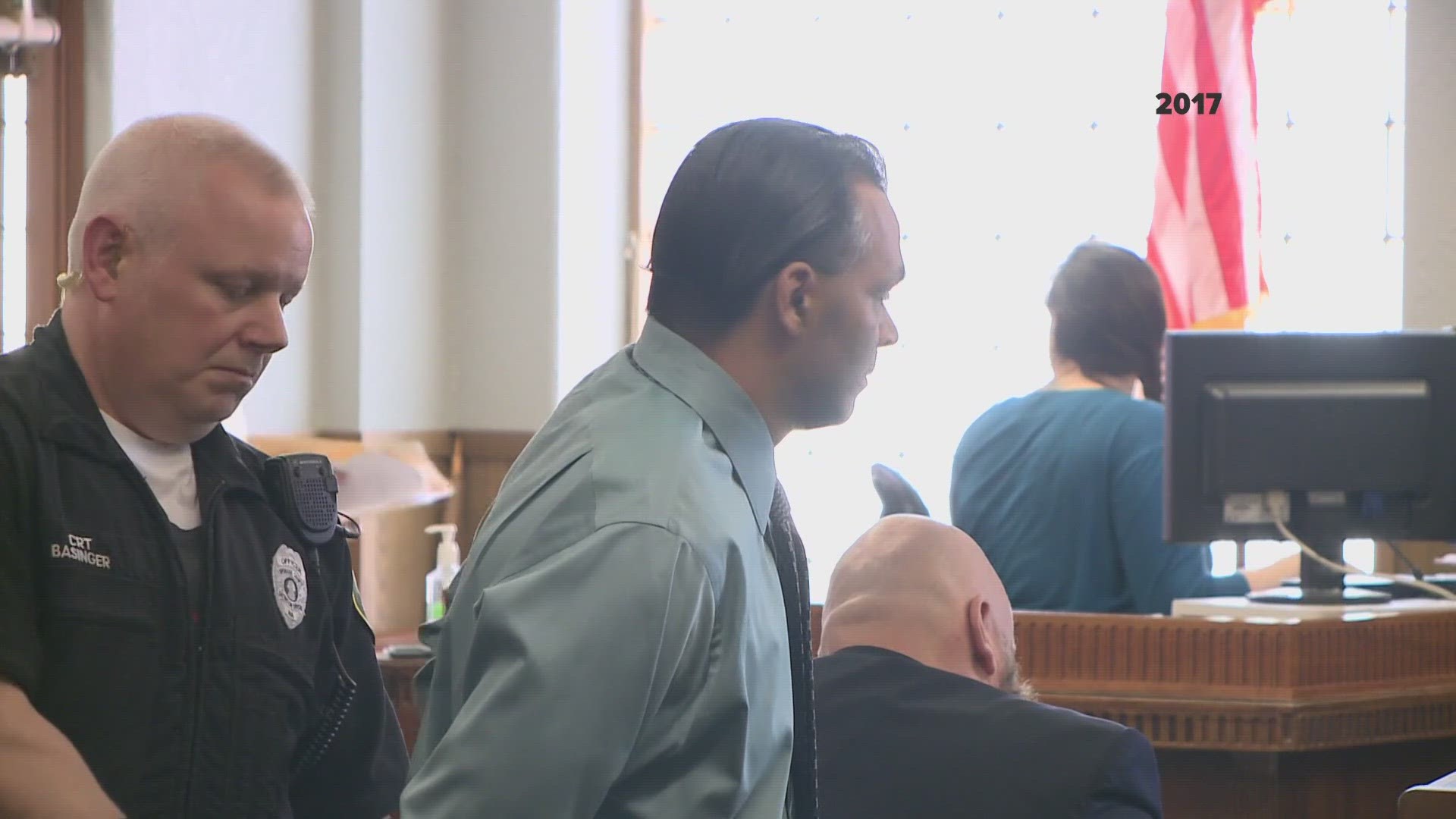MEAD, Wash. – Wild turkeys are taking over a mobile home park in Mead.
Residents said when this first started happening, it was just 10 to 15 turkeys. Now there are about 200.
People who live in the community said the turkeys are running around and damaging their property. They are also concerned about the potential health risks.
Jim McDonald has lived in the Shenandoah Forest Park mobile home community for 13 years. He cannot remember a time he did not have rambunctious, feathery neighbors.
"One time we were sitting here talking and they were pecking on the door like they wanted to get in," McDonald said.
The turkeys have made themselves quite at home here. Neighbors said they have damaged homes with their pecking but the biggest problem is they make a mess everywhere, staining the concrete and decks.
“Their little land mines, they are everywhere and if you track them in the house it's like grease it's really hard to clean up," McDonald said.
One woman said she worries they will spread disease and make people sick. These are all concerns for those who manage the community.
"It's discouraging at times because I get at least one or two calls a day regarding the turkeys," said Shenandoah Forest Park Community Manager Sis Rohrbach.
Rohrbach said the turkeys were put here about 15 years ago by the Washington Department of Fish and Wildlife. Back then they had less than 20 turkeys, now she said they have about 200 around the entire property. She said she calls Fish and Wildlife every year.
"I told them every year that's there 20, 30 more and they said find the nests and destroy the eggs," she explained.
That is not so easy to do. She said the nests are in a wooded area that is hard to get to. They have thought about trapping the birds, but they just do not have the people to do it. They only have one maintenance person.
While Rohrbach continues to look for a solution to their turkey problem, neighbors like McDonald live with the fact you cannot choose your neighbors.
"It's like you have no control over it, there's nothing you can do because your hands are sort of tied," he said.
KREM 2 reached out to the Washington Department of Fish and Wildlife and we are waiting to hear back from them about what those people can do.


